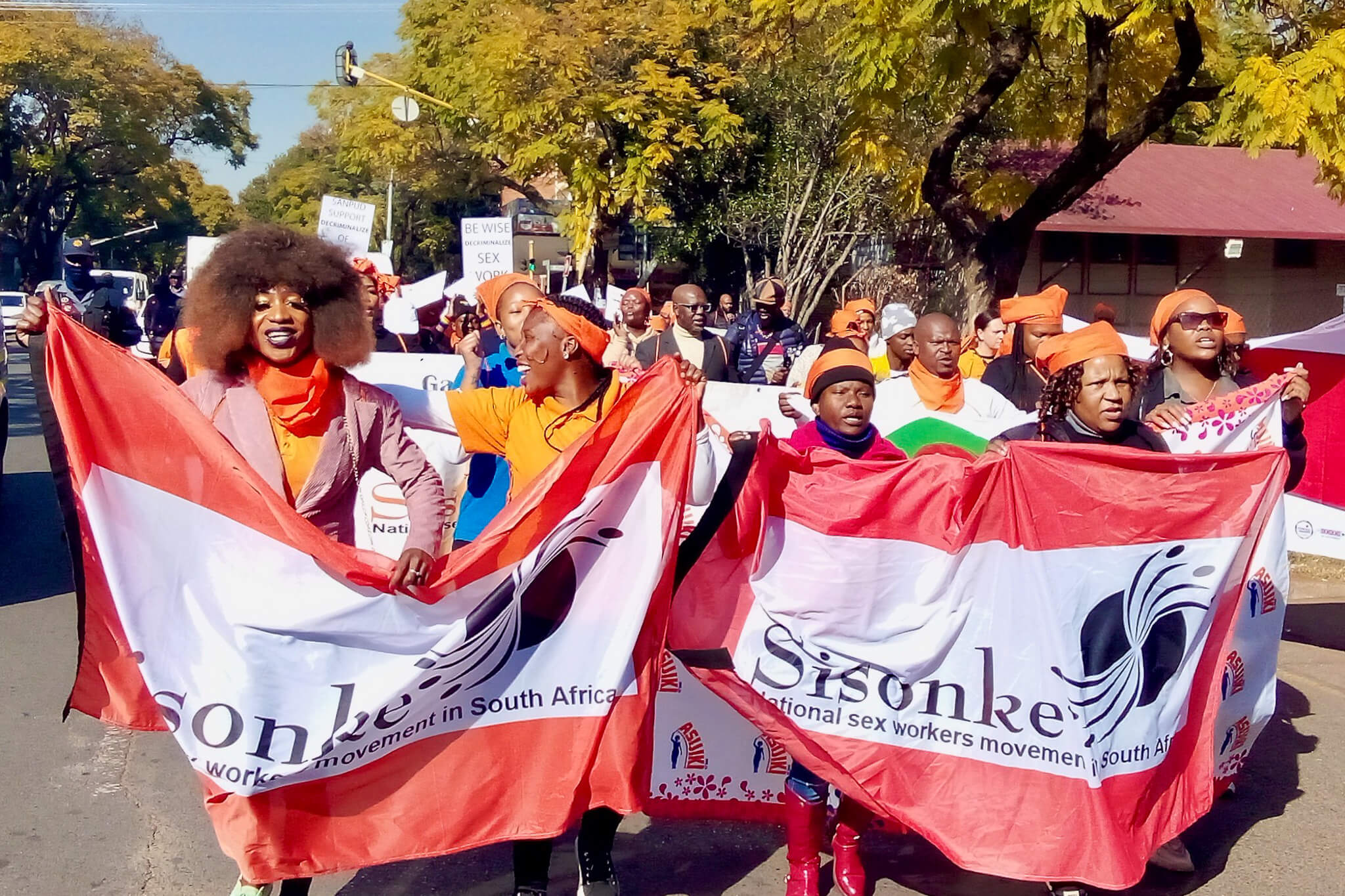Exactly 20 years ago, 70 women took it upon themselves to form a Movement to challenge the stigma and discrimination endured by sex workers, particularly street-based sex workers, which fueled the racial and economic divide among women.
Continuing the work of male sex worker and social worker Shane Peltzer (may he continue to rest in power), to decriminalize sex work in South Africa, these women from all walks of life established Sisonke National Sex Workers’ Movement.
With the force of these women, Sisonke National Sex Workers’ Movement saw the rise of similar movements in nine other African countries. This South African-based Movement birthed Sisonke Botswana, Kenyan-based KESWA, Malawian-based FESWA, and Zimbabwean-based ZIMSWA, spreading the notion of women empowerment in the sex work industry as far afield as Uganda and Nigeria.
Despite sex work being criminalized in many of these countries, the unity to rally behind each other and hold governments accountable for the gross inhumane human rights violations targeting women in sex work at the hands of healthcare workers, law enforcement agencies, and general members of the public has brought about the much-needed shift in how sex workers’ rights are being addressed.
In South Africa, almost three decades into the call to decriminalize sex work, members of the public were in 2022 afforded the opportunity to publicly comment on the amendment of the Sexual Offenses Act. The two-prong Bill afforded sex workers the opportunity to have their existing criminal records (only those records which entailed the admission of guilt to purchase/solicit the sale of sex) expunged. Secondly, the Bill would lawfully permit the sale and purchase of sex, and sexual activities between consenting adults.
These provisions have since been marred by provisions from the State Law Advisor to regulate the industry and make provisions for matters already addressed in the Children’s Act and laws regulating human trafficking, thus leaving sex workers with no human dignity and existing criminal records which push them further into the racial and economic divide.
Of course, the struggle does not end with the marred Decrim Bill but continues with these women joining forces with members of the 18-sector civil society forum who are at the forefront of addressing the scourge of HIV, TB, STIs, and GBVF.
This Women’s Month, we applaud the women who have stood by Sisonke National Sex Work Movement to continue the advocacy work to repeal punitive laws preventing sex workers from accessing and exercising their Constitutional rights to economic freedom, healthcare, justice, and freedom of association.
AMAAAAAAAANDLA! AMAAAAAAAANDLA! Wathinta abafazi wathinta imbokodo! Sixth Administration, give us the first YES #decriminalizesexwork
